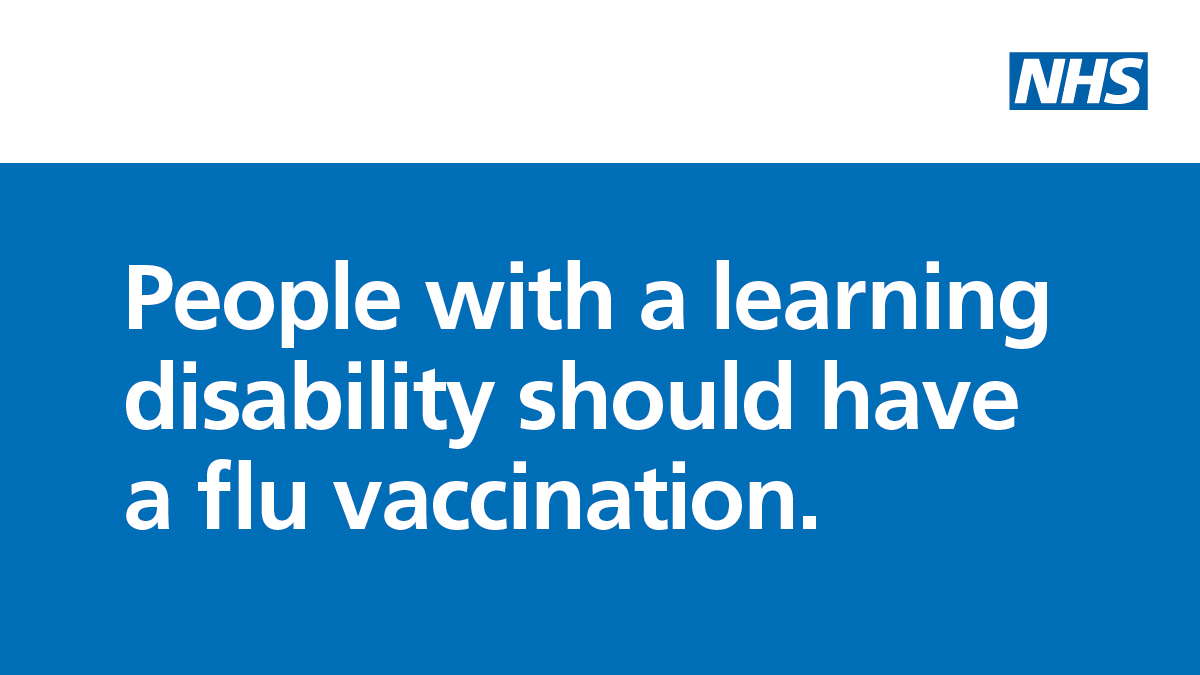
The national flu campaign to encourage uptake of the free flu vaccination, particularly amongst at risk groups, has launched.
Individuals with a learning disability are identified as an ‘at risk’ group and are therefore entitled to a free flu vaccine. As are their carers, whether that is a family member or paid support staff who care for the individual day-to-day.
As such, the West of England AHSN and our Learning Disabilities Collaborative will be continuing to share advice and raise awareness of the importance of individuals with a learning disability, their families and carers, getting the flu vaccination throughout winter.
On behalf of the NHS, Misfits Theatre Company have created a great video which tackles the misinformation surrounding the flu vaccination head on and urges people with learning disabilities and their carers (family member or support worker) to not delay in getting their free flu vaccine.
You can watch the video here.
People who have a learning disability can be more susceptible to the effects of flu and are therefore at increased risk of developing complications such as bronchitis or pneumonia. As the NHS emerges from the covid pandemic, anyone with a learning disability is encouraged to get their free vaccination and annual health check to help stay well this winter.
Carers of anyone with a learning disability are also entitled to the free vaccination. All carers (family member or support worker) are urged to ensure they are registered at their local GP practice as a carer of someone with a learning disability. Individuals should also be on their GP Learning Disability Register to access the very best care.

Now is the time that GP practices and community pharmacies are carrying out vaccinations for those at risk. The vaccine offers the best level of protection from the flu virus, and it’s important to have the vaccine every year, especially as the flu virus strain changes every year. Anyone who is defined as being in an ‘at risk’ group should contact their surgery and arrange an appointment to have the vaccine.
Having the vaccine sooner provides the individual with protection over a longer period of time; it also helps reduce the chances of spreading the virus to family and friends.

Hannah Little, our Patient Safety Improvement Lead and Senior Project Manager said:
“Flu is a very unpleasant illness. The symptoms can be miserable for many of us, but it can lead to more serious complications for those who fall within certain clinical ‘at risk’ groups. Some people with a learning disability can be more susceptible to flu and can go on to develop more serious complications like pneumonia. Respiratory conditions remain the most significant causes of premature mortality for people with a learning disability where deaths have been reviewed as part of the LeDeR programme.
I’d urge people to make sure they have the vaccination as soon as possible. They should also ask to have their Annual Health Check, which our Learning Disabilities Collaborative discussed at our September 2020 webinar. Carers of anyone with a learning disability should also get the free vaccine from their GP surgery or community pharmacy, the sooner the better to get the best possible protection.”
The full pack of winter flu resources for people with learning disabilities and their carers (which includes high resolution resources for social media, communications toolkit and grab pack for professionals) is available on the NHS England and Improvement website.
The flu vaccine is also free for patients in the following at risk groups:
• Those aged 65 years or over (including those becoming age 65 years by 31 March 2021)
• Those aged from 6 months to less than 65 years of age with a serious medical condition such as:
• Chronic (long term) respiratory disease, such as severe asthma, chronic obstructive pulmonary disease (COPD) or bronchitis.
• Chronic heart disease – (such as heart failure).
• Chronic kidney disease (at stages three, four or five).
• Chronic liver disease.
• Chronic neurological disease such as Parkinson’s disease or motor neurone disease
• Diabetes
• Splenic dysfunction
• Reduced immune system due to disease (such as HIV/AIDS) or treatment (such as cancer treatment)
• Morbidly obese (defined as BMI of 40 and above)
• All pregnant women (including those women who become pregnant during the flu season)
• All children aged 2 and 3 years• All children in school years R through to year 5
• People living in long-stay residential care homes, or other long-stay care facilities where rapid spread is likely to follow the introduction of infection and cause high morbidity and mortality.
• People who are in receipt of a carer’s allowance, or those who are the main carer of an older or disabled person whose welfare may be at risk if the carer falls ill
• Consideration should also be given to the vaccination of household contacts of immunocompromised individuals, specifically individuals who expect to share living accommodation on most days over the winter and therefore for whom continuing close contact is unavoidable
Posted on October 5, 2020


